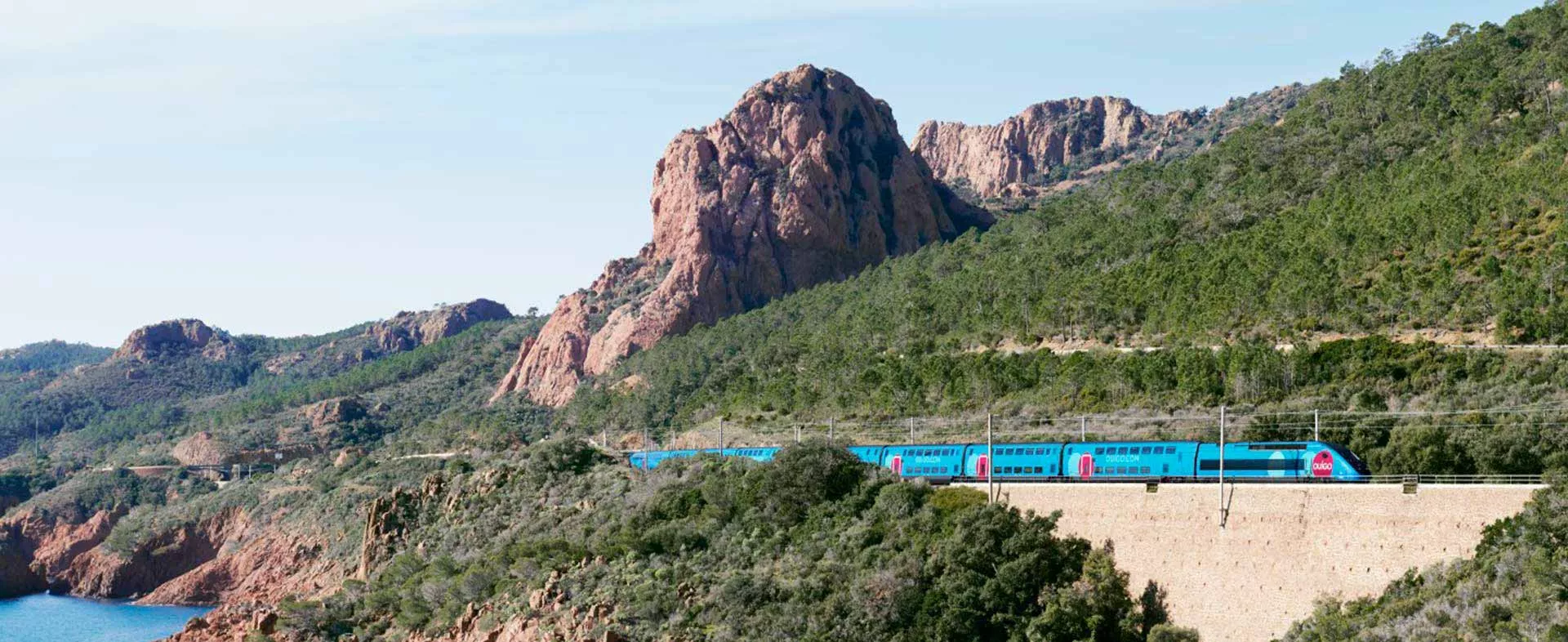
Preserving resources and limiting waste
We’re working hard to protect natural habitats, cut resource consumption and source responsibly—all while delivering safety and high performance for shippers and passengers. Find out how.
SNCF Group’s network includes 28,000 km of track, over 3,000 stations and around 50 industrial facilities. Through our operations and infrastructure, we interact directly with a multitude of ecosystems. Which means we have a key role to play in preserving natural resources and fighting the impact of material and waste production on the environment and biodiversity.
“Avoid, reduce, offset”
We carry out a wide range of “avoid, reduce, offset” (ARO) studies to better understand how our facilities affect neighbouring plants and animals, and to ensure that our operations are well integrated into their surroundings.

We’ve targeted a
25%
cut in water consumption by 2035

Almost
¾
of our wooden sleepers are made of French oak
Along our
28,000 km
of track, we’re recreating grassland to support eco-diverse ecosystems
Taking action at every level
We promote biodiversity in every area, from project management and property maintenance to responsible sourcing and water sufficiency.
Every drop of water counts
Preserving water resources is in the public interest. Even though SNCF Group accounts for only 0.1% of water consumption in France and just 3% of industrial consumption, we’ve rolled out a water sufficiency plan that should cut our consumption 25% by 2035.
Water-saving measures include improving leak detection, collecting rainwater, and adopting carefully defined alert levels to guide our response to drought.
In the circular economy, nothing goes to waste
Making the circular economy a reality is a priority for us.
Since 2013, SNCF Group has developed a strategy to limit consumption by reducing waste in all of our processes. This focuses on reusing end-of-life products, recycling rolling stock, re-purposing disused track components, collecting IT equipment through an SME employing disabled people, recycling discarded work clothes and more.
At SNCF nothing is lost—everything is transformed.
You can check out the Group's Circular Economy Policy at the bottom of this page.
Setting the standard for project management
We want to make SNCF Group a model for good project management. This effort includes:
- promoting proactive biodiversity initiatives
- financing research projects
- creating partnerships with biodiversity stakeholders
Trackside land and green spaces
We’ve updated our methods for maintaining the land that runs along our 28,000 km of track, replacing them with adaptive management that promotes biodiversity by recreating grassland.
We stopped applying glyphosate in late 2021 and have adopted alternatives such as eco-grazing and plant cover to maintain our green spaces.
Sustainable, responsible wood sourcing
Every year, SNCF Réseau lays 450,000 wooden sleepers. French oak accounts for 74% of them, and the remaining 26%, used in sensitive areas, are made from more durable tropical woods.
The tropical wood we buy is certified sustainable by the Forest Stewardship Council, ensuring that our purchases:
- come from sustainable resources
- respect the rights of local populations
- preserve biodiversity
- conserve soil and water resources

Tonnage equal to
300
Eiffel Towers recycled each year: 3 million tonnes of disused track materials

Each year
55,000
tonnes of components stripped from end-of-life trains are recycled

23 000 tons
of outfits worn by SNCF agents have been collected in order to be recycled
Reducing railway noise
Our policy calls for limiting noise pollution produced by our trains. The aim is to improve on-board acoustics for passengers and employees, but also reduce impacts for local residents within earshot of our tracks, with a particular focus on noise hotspots.
These efforts to limit and reduce noise impacts concern:
- infrastructures
- rolling stock
- stations
- industrial installations and processes
Group circular economy policy
DOCUMENT
FrenchPDF • 2.1MB
Download Group circular economy policy - French - pdf - 2.1MBShare the article